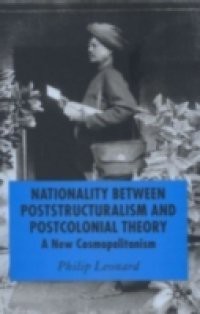Focusing on the work of Derrida, Deleuze and Guattari, Kristeva, Spivak, and Bhabha, this important new study examines and interrogates recent work on nationality in literal, critical and cultural theory. It claims that between poststructuralist and postcolonial theory there emerges a restless sequence of conceptual inventions and interventions that allows the national, the transnational, and the global to be thought differently. Cosmopolitanism, hospitality, nomadism, non-nationalitarianism, the new International, the native informant, hybridity and postcolonial agency are some of the concepts that provide a crucial role in this intervention. Leonard also argues that the theorists considered here do not collectively provide a new and cohesive lexicon but that questions of national identity expose striking differences and divisions between them. Foregrounding the political force of poststructuralism, this book will be of interest to students and scholars in postcolonial, nationalism and globalisation studies.

